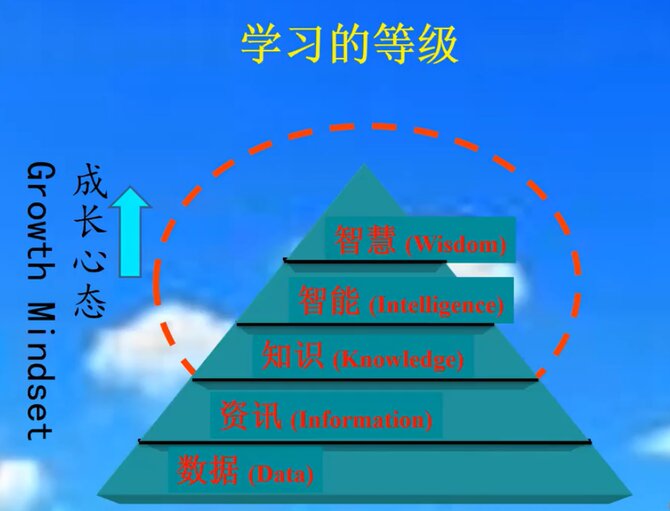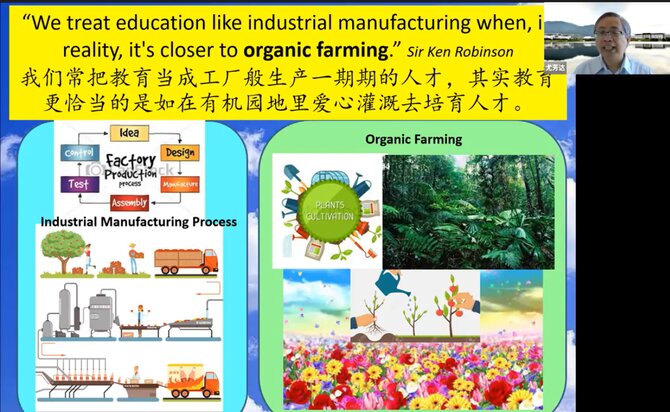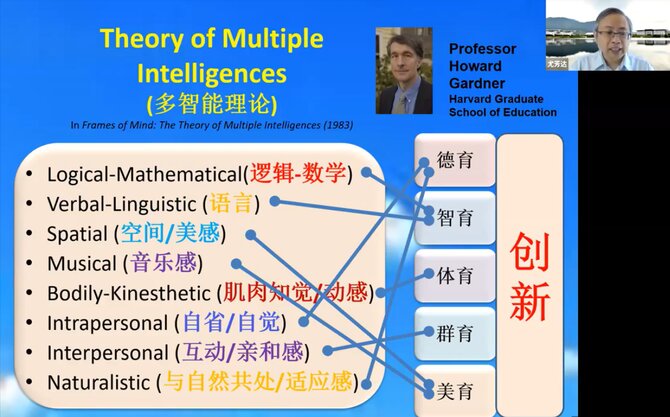Reported by:
Zhang Xi Yue JR1Z(6)
On the 31st of July 2021, Kuen Cheng High School Counselling Department organised a talk by Ir Professor Dr Ewe Hong Tat, President of Universiti Tunku Abdul Rahman (UTAR). Target audience was parents of Senior Middle students. It was concerned about the children’s future.
Before starting, Prof Ewe made sure all the parents knew how to use the Zoom features. First, he talked about the technological revolution and how the evolution of human society affects education. He told us what he thought was key for a brighter and happier future, which was self motivation. As intelligence becomes more critical, being motivated to learn also becomes increasingly important.
After that, Prof Ewe showed the growth mindset pyramid. The base of the pyramid represents the least essential data, which is just something we all know. Then comes information which is like knowing the speed of a car is x km/h. The middle of the pyramid indicates knowledge where a lot of information is put together, knowing that you don’t have enough fuel. On the second-highest level of the pyramid is intelligence, which means analysing the knowledge we have. For example, the sky appears grey, thus it might rain, and it is not safe to drive on the highway. Last but not least, on the highest level of the pyramid is wisdom which is similar to slowing down due to a speed limit. It is like knowing right from wrong, as described by Prof Ewe.
Prof Ewe believed that having the right attitude and being knowledgeable is crucial in the fourth industrial revolution(Industry 4.0). He showed us the continuous innovation of Silicon Valley and its ups and downs. This shows that not everything went smoothly from the beginning.
Then, our guest speaker talked about the growth mindset and fixed mindset. What are they exactly? A person with a fixed mindset thinks qualities like intelligence and talents cannot be altered, while a person with a growth mindset believes that there will be positive outcomes through hard work. Besides, a person with a fixed mindset will ignore negative feedback and find the success of others threatening. In contrast, a person with a growth mindset will embrace criticism and find inspiration in the success of others. It is also crucial to develop an understanding and kind personality.
As a famous lecturer once said, “We treat education like industrial manufacturing when in reality, it is closer to organic farming.” Prof Ewe told us developing emotional intelligence, a creative mind, and an interest in learning are important as well as meaningful to each of us.
Prof Ewe continued that creativity and knowledge are equally important because none of them is as good without the other. He also said that he thinks the next wave of technology and the digital economy will improve our lives. However, he believed that AI would likely hack our brains. This is because AI understands us more than we know ourselves. An example of this is the YouTube website. By analysing videos watched frequently, the website gave recommendations that will pique one’s interest to watch more, which leads to longer screen time. It will also make us forget there are other contents beyond the ones suggested.
Later on, Prof Ewe told us the challenges of education in the 21st century which include preparing students for jobs that have not existed, technologies that have not yet been invented, problems that are beyond what we know.
Prof Ewe then mentioned the importance of a college education. The purpose of further higher education on how to communicate, think, and develop the right attitude. “The skills needed for the future are adaptability, the keenness to keep learning, mental balance and emotional intelligence,” he quoted from writer Yuval Noah Harari.
Universities today are looking for students with the following qualities:
-
Good academic performance
-
Active participation in extracurricular activities
-
Positive attitude
-
Outstanding overall performance
-
Self-disciplined
-
Has good foundation in learning




